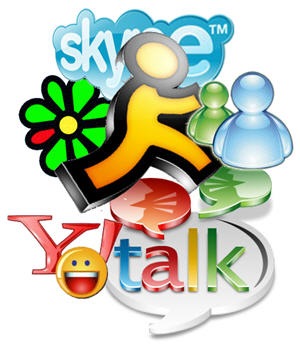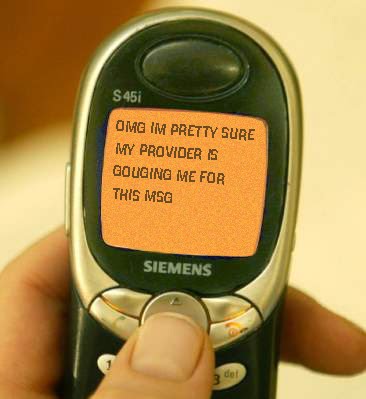From a Reuters Article:
"BANGALORE, Aug 25 (Reuters) - Syniverse Holdings (SVR.N) said it would buy Verisign Inc's (VRSN.O) messaging business for $175 million and expects the combined business to grow about 10 percent annually, sending its shares soaring more than a quarter.""The wireless voice and data services provider, whose customers include AT&T Inc (T.N), Telefonica (TEF.MC) and China Telecom (0728.HK), hopes to ride on rising demand for smart phones and netbooks."
"Smartphones would account for 29 percent of the entire mobile phone market in 2012, compared with 14 percent in 2009, Samsung Mobile Display predicted in a statement in April."
Why is Syniverse buying Verizon's MMS and SMS business for $175 million? Syniverse obviously thinks these are useful services. And you only buy a thing if it's going to earn you more than it costs, so Syniverse must believe they will make more than $175 million off of the business.
And people really do pay for SMS and MMS. Speaking just for SMS, My mother's Sprint/Nextel plan charges $0.40 for each SMS. She could upgrade to a pricier plan, pre-paying for a few hundred SMS messages. Is this a sustainable price?
Why is Verizon selling their MMS and SMS business? I think this is the fun part: the price of SMS will rapidly approach zero. Why will it be free? People, like my mom, are using an Internet-capable device to send a 160-byte message to another Internet-capable device. That's ONE PACKET to deliver a message, and then an acknowledgment.
To migrate AWAY from MMS/SMS, won't the carriers need to develop competing technology? Not really: AIM, MSN, Yahoo! Instant Messenger, and Google Talk have already developed a perfectly reasonable way of doing it.
So why aren't people using Internet-based Instant Messaging on their phones right now? There are some genuine accidental advantages to SMS:
- User Interface. The MMS/SMS user interface is very simple; it doesn't require starting a special application, or booting a java subsystem. Instant Messenger clients, at the moment, usually do.
- Integrated into mobile phone signaling. This lets you use SMS without going through an elaborate "connecting to the Internet" ritual. And it lets you receive messages even if you are "offline" -- whatever that means for a mobile phone that's always connected to its carrier.
But these are accidental advantages -- easily extinguished by better software and service design.
There was an era when a mobile phone plan did not include voicemail. Then there was an era when it didn't include text messaging. Now we're in an era where some mobile plans don't include Internet access. But that, too will change. Every phone will have Internet access, just as every plan now has voicemail.
Samsung, LG, and the other mobile phone developers could easily build on this to add an Instant Messenger client into the phone. It could work as seemlessly as SMS/MMS does today. And it relieves the network operator, such as Verizon, from running servers to process all of these messages. Just let AIM, Yahoo, and Google do that for you!
SMS is part of the mobile phone signaling protocol, so you can get your SMS anywhere you can get phone service. Apple has harnessed this by using specially-encoded SMS messages to control its features, and implement "Push" notifications for the iPhone. Other vendors could follow this lead. Or, they could simply ensure that the mobile device is always on the Internet; so that if it can receive mobile phone signaling, it can also receive packets from the Instant Messenger server. IM clients, and servers, already accommodate mobile and weakly-connected clients.
So is MMS and SMS worth $175,000,000? For Verizon, the answer is clearly no -- they'd rather have the cash than the business! And I think it's easy to see why: SMS and MMS are great services that can easily be re-implemented with cheap and free Internet-based technology.
Syniverse sees this as a "strategic decision" that expands their customer base -- but in reality, they're just in love with SS7. It's like the old Strategic Planning saw about the locomotive industry; they saw themselves as a train industry, instead of a transportation industry. Syniverse sees itself as an SS7/C7 company, not a messaging and call control company.



